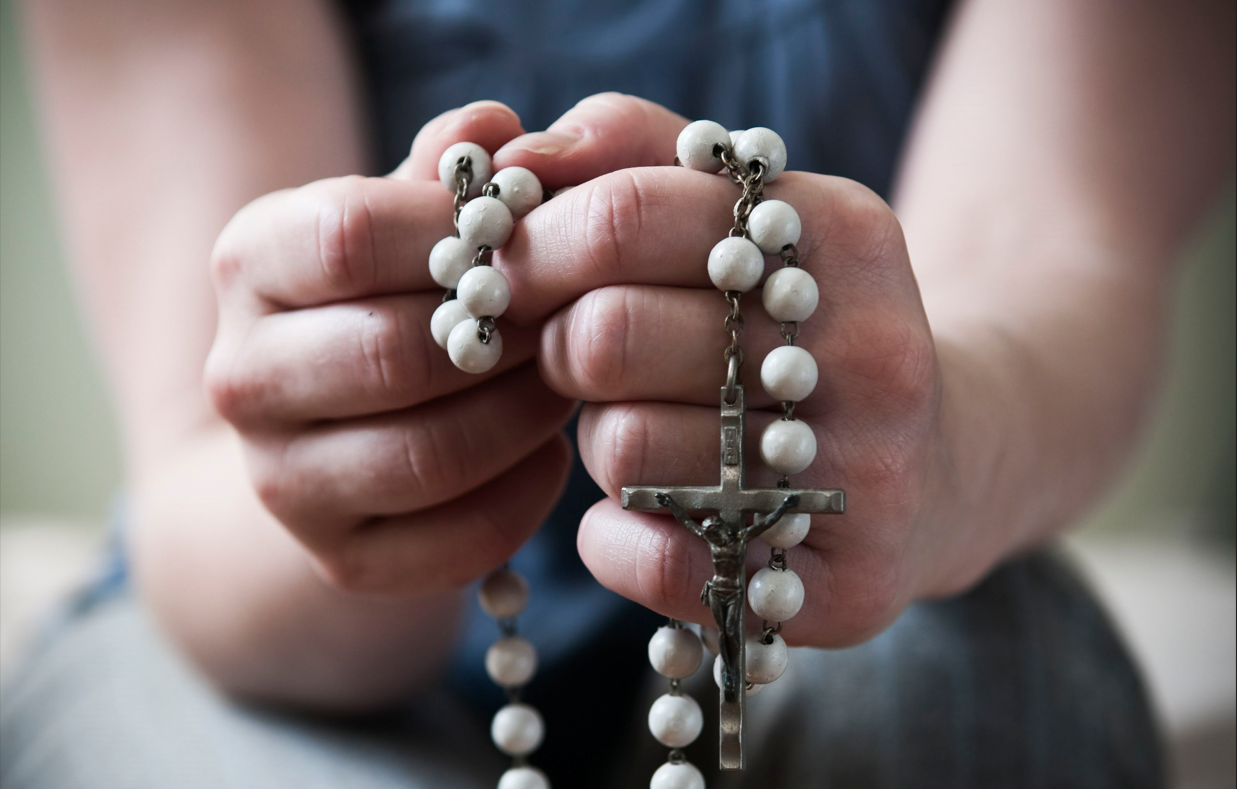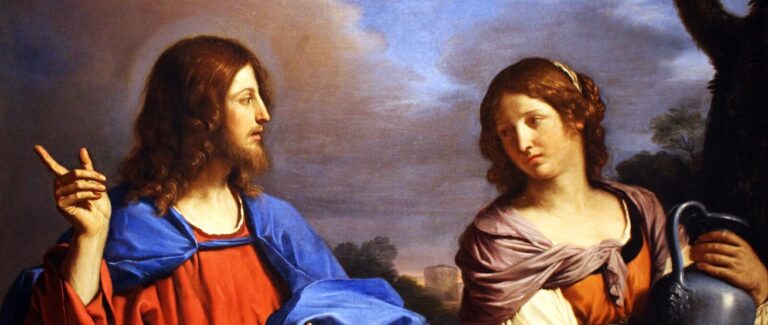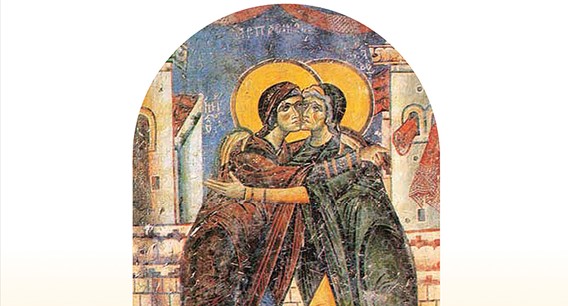
THE ROSARY, PRAYING AND LIVING A MYSTERY

Using prayer beads in meditative prayer is part of many religions in the world. In Buddhism and Hinduism there are 108 beads for the 108 Sacred Mantras. In Islam there are 100 beads for reciting the 100 great names of Allah. This speaks of profound connection to our brothers and sisters of other faiths. Our Rosary has 150 beads. Through the Rosary, we are invited to meditate on the Joyful, Sorrowful, Glorious and Luminous Mysteries associated with the life, death, resurrection and ascension of Jesus as they relate to his mother, the Blessed Virgin Mary. In all these examples of the use of rosaries, the counting of beads with recitation is a form of meditation bringing us closer to the Divine Mystery that transcends us all.
In our spiritual history, St. Dominic is attributed with the foundation of the Rosary after he had a vision of the Blessed Virgin Mary in 1214. In this vision he was taught the Rosary and asked to pray it regularly and fervently. Historically, there is evidence of Rosary-like prayers predating St. Dominic by a few centuries. Whatever the historical or spiritual foundation, the Rosary has for centuries been at the centre of Roman Catholic prayer practice for centuries.
The centrality of the Rosary in Catholic piety aside, I have a friend who cannot abide praying the Rosary. In his household, the Rosary was used as a weapon for punishment. If he was arguing with his siblings, they were forced to pray the Rosary. If he got angry, he was forced to say the Rosary. The list goes on. His parents also connected the Rosary to their own political agenda which espoused racism, homophobia, xenophobia, among others. This left a bitter taste in his mouth when it came to praying the Rosary. In essence he was robbed of the beauty and benefit of praying the Mysteries.
I remember the first time he told me of his aversion to praying the Rosary. I had a totally different association with the Rosary. I grew up in a small Catholic village in Newfoundland. Every household I knew of prayed the Rosary every night after supper. We were all poor and life had dealt our families many hardships. In my household, despite the hardship, I associate this time of my life with laughter, joy and faith. We laughed and joked over our simple meals, and afterward over tea around the woodstove. Mom and Pop made sure we prayed the rosary every night and said our morning and evening prayers with gratitude for all we had. Through these prayers I was taught lessons about forgiveness and self-sacrifice that shaped me for the rest of my life. Mom also made sure we regularly attended Sunday Mass. Here we learned of the God who was a friend of the poor. We were reminded through the readings and the homilies that God loved us unconditionally and expected us to be kind and loving to those around us. The rituals of the Church sustained us when we were tempted to feel hopeless, calling us to transcend ourselves and our situation. The Church also provided us with the friendship of others who lived in the same situation. Watching how the adults of my hometown, particularly Mom and Pop, found joy and laughter amid hardship, girded by faith and trust in God, built in me a willingness to look for fertilizer amid the messy pile of metaphorical manure life dumped in front of us. The Rosary was part of a rich spiritual practice, not a political or power pawn to judge, condemn and punish.
My friend had the opportunity to visit my family and village once. Unfortunately, one evening during his visit, my Mom had a “heart incident” and it looked like she might die. The nearest hospital was miles away. The nearest priest was much further. The women of the village gathered with my Mom as she lay on her sick bed. They lit holy candles and blessed her with holy oil. As my friend and I sat on the floor, the women began to pray the Rosary. In her weakness and agony, my Mom joined in. As the Rosary continued, the rhythmic undulation of the exchange of prayers took on a mystic level. My friend, for the first time in his life entered the mysterious power of praying the Mysteries. It was a totally different experience for him. It was a moment of nostalgia and connection for me. Luckily, by the next day, Mom felt a lot better.
I offer that the power of the Rosary is never about our own agendas, politics, attitudes and biases. It is about taking the time, in communal prayer, to connect to the events in the lives of simple people like Jesus and the Blessed Virgin Mary. It is to witness the great Mysteries that filled their moments and invite ourselves to look for the great mysteries that are part of our own lives. Through repetition and shared recitation, we connect to each other as simple humans surrounded by the great Mystery that is our loving God. In this, maybe we share an intimate bond with our sisters and brothers of other faiths who seek connection to the Great Mystery in the everyday events of life.
(With an adapted except from There Must be a Pony In Here Somewhere: Everyday Stories of God’s Goodness, Novalis, 2020).
Michael Way Skinner is a retired Coordinator of Religion, Family Life and Equity
with the York Catholic District School Board. He was a contributing author to World
Religions: A Canadian Catholic Perspective, and co-authored There Must be a Pony in Here Somewhere (Novalis, 2020) with his wife, Christine Way Skinner. Michael is a public speaker and award-winning educator who is deeply committed to faith as a source for inclusion and justice.



Our family prayed the Rosary every day after supper – like many thousands of us. I did not know, then, that I was a member of such a large community of pray-ers. Now every time I pray the Rosary I know that I am not alone. I have created my own Mysteries – one commemorating women of the Bible.
Nice to know Michael is from NL